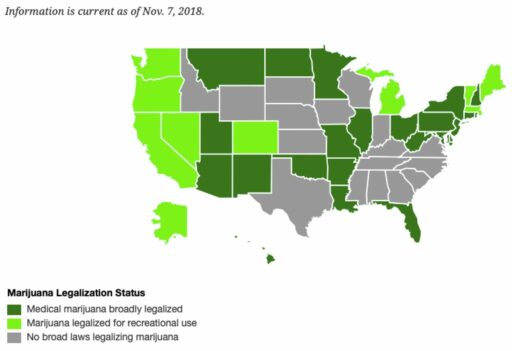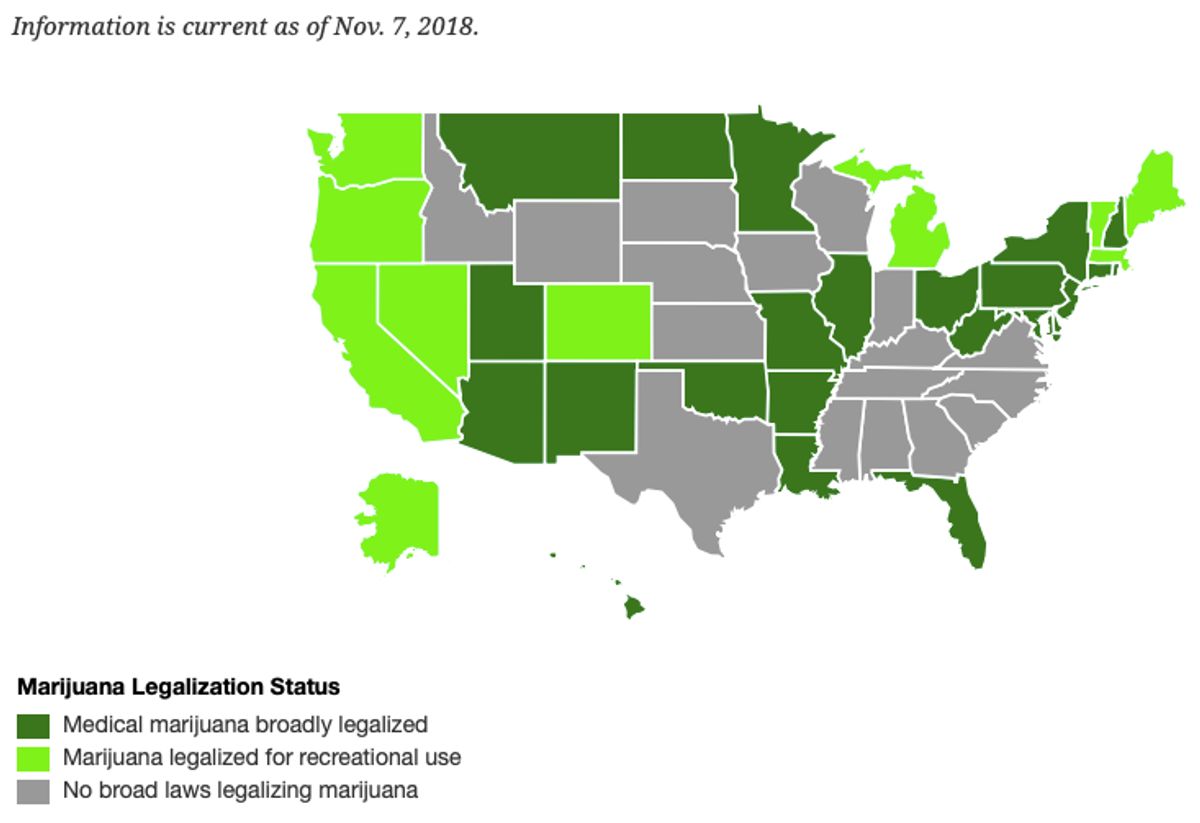As the debate over marijuana legalization in Tennessee continues to evolve, it’s important to reflect on the milestones already achieved and the challenges that lie ahead. From legislative hurdles to the social and economic implications, understanding the state’s journey towards potential legalization offers insight into the broader movement for cannabis reform. This article delves into the key aspects of Tennessee’s relationship with marijuana laws and the future of green in the Volunteer State.
Key Takeaways
- Tennessee has faced significant legislative hurdles, including a missed opportunity for residents to vote on marijuana legalization.
- House Democrats have been vocal in pushing for legalization, while federal prohibition continues to complicate state efforts.
- Legal implications, such as the expungement of convictions and the rise of synthetic drug alternatives, highlight the need for law reform.
- The state’s agricultural sector is adapting to hemp cultivation, with sustainability and economic potential as key considerations.
- Public opinion and advocacy play crucial roles in shaping marijuana policy, with anticipated benefits for the state’s economy and social justice.
The Legislative Hurdles to Marijuana Legalization

The Right to Vote on Legalization: A Missed Opportunity
In the ongoing debate over marijuana legalization in Tennessee, a significant moment was lost when lawmakers denied the addition of three pivotal questions to the 2024 ballot. Citizens were poised to voice their opinions on whether the state should legalize medical marijuana, decriminalize possession of small amounts, and regulate commercial sales for recreational use. This decision not only stifles the democratic process but also ignores the high support for cannabis reform among Tennesseans.
The rationale provided by legislators for this omission was ‘voter’s fatigue,’ suggesting that the length of the ballot could overwhelm voters. However, many see this as a thinly-veiled attempt to circumvent public will. The right to vote is a cornerstone of democracy, and denying this right on the grounds of presumed disinterest undermines the very principles Tennessee prides itself on.
The essence of democracy is the right to vote on matters that directly affect our lives. By not allowing a vote on marijuana legalization, the state has effectively silenced its citizens on an issue of significant social and economic importance.
The table below outlines the questions that were excluded from the ballot, highlighting a missed opportunity for public engagement:
| Question | Description |
|---|---|
| Legalize Medical Marijuana | Should Tennessee allow the use of marijuana for medical purposes? |
| Decriminalize Possession | Should Tennessee decriminalize the possession of less than one ounce of marijuana? |
| Regulate Commercial Sales | Should Tennessee legalize and regulate the commercial sales of recreational marijuana? |
House Democrats and the Push for Legalization
In the ongoing battle for marijuana legalization, House Democrats have been vocal advocates, pushing for legislative changes that align with the shifting public opinion on cannabis. Their efforts, however, often clash with opposition from conservative counterparts and the intricate web of existing laws.
Recent legislative sessions have seen a surge in amendments and proposals aimed at paving the way for legal cannabis sales. Among these, the inclusion of funds for legalization in major bills reflects the Democrats’ strategic approach to integrate cannabis reform into broader legislative agendas.
The urgency for reform is underscored by the growing acknowledgment of cannabis prohibition as an outdated policy that fails to serve the public interest.
Despite the clear push from House Democrats, the path to legalization is fraught with complexities, not least due to the federal government’s stance on cannabis. The juxtaposition of state-level enthusiasm against federal prohibition creates a challenging landscape for advocates of legalization.
The Impact of Federal Prohibition on State Efforts
The federal government’s stance on cannabis has long cast a shadow over state legalization efforts. Federal prohibition acts as a significant barrier, complicating the legal landscape for states like Tennessee that are considering marijuana reform. Despite growing public support, the clash between federal restrictions and state initiatives creates a precarious situation for lawmakers and advocates alike.
- Federal law classifies marijuana as a Schedule I substance, alongside drugs like heroin and LSD.
- This classification limits research opportunities and access to banking services for cannabis-related businesses.
- States must navigate a complex web of regulations that deter potential investors and hinder the growth of a legal cannabis market.
The tension between federal law and state autonomy has sparked a debate on the rights of states to enact policies that reflect the will of their constituents. Without a change at the federal level, states are left to chart an uncertain course, balancing the desire for reform with the need to comply with overarching federal guidelines.
The Social and Legal Implications of Marijuana Laws

Expungement of Convictions: A Step Towards Justice
The journey towards justice for individuals with past marijuana convictions in Tennessee has seen significant progress with the introduction of new expungement laws. Expungement offers a fresh start by erasing the stigma and barriers associated with a criminal record. The process, however, is not without its complexities.
In 2017, Tennessee passed several laws aimed at improving the expungement process. These laws expanded eligibility, allowing more people to petition for the removal of certain misdemeanors and low-level felonies from their public records. Despite these advancements, challenges remain. For instance, expunged cases can still surface on private background checks, causing confusion and potential discrimination.
The expungement process is a critical step in restoring rights and opportunities to those affected by past marijuana laws. It acknowledges the disproportionate impact these laws have had on certain communities and seeks to rectify past injustices.
While the state moves forward with these legal reforms, it’s essential to understand the practical implications for individuals seeking expungement. Below is a list of key points to consider:
- Eligibility criteria for expungement in Tennessee
- Steps to file for expungement
- Potential obstacles, such as private background checks
- Resources available to assist in the expungement process
The Consequences of Synthetic Drug Alternatives
In the wake of marijuana’s uncertain legal status, synthetic drug alternatives have emerged, presenting new challenges for Tennessee. These substances, often marketed as ‘bath salts’ or ‘plant food,’ have led to a surge in adverse health incidents and fatalities. The allure of these synthetics lies in their temporary legality and accessibility, but the consequences are severe and long-lasting.
The synthetic drug crisis underscores the need for clear, effective drug policies that address the root causes of substance abuse and provide safe, regulated alternatives.
While some argue that synthetic drugs are a byproduct of marijuana prohibition, others point to a broader issue of drug misuse and the need for comprehensive education and prevention strategies. The following table illustrates the stark contrast between the effects of marijuana and synthetic alternatives:
| Substance | Potential Effects | Legal Status in Tennessee |
|---|---|---|
| Marijuana | Euphoria, relaxation | Illegal (as of last update) |
| Synthetics | Severe health risks, addiction | Temporarily legal, often banned |
As Tennessee grapples with these issues, it’s clear that a balanced approach to legalization could mitigate the risks associated with synthetic drugs. The state’s efforts to combat drug abuse must evolve to keep pace with the changing landscape of substance use.
Navigating the Complexities of Cannabis-Impaired Driving Laws
As Tennessee grapples with the implications of marijuana legalization, one of the most challenging aspects is the enforcement of cannabis-impaired driving laws. Unlike alcohol, where blood alcohol concentration (BAC) levels provide a clear legal threshold, marijuana intoxication is not as straightforward to measure.
The complexities of these laws lie in the balance between individual liberty and public safety. Law enforcement must have probable cause to test a driver for marijuana use. This means that officers cannot simply act on a hunch; they must observe signs of impairment or have other substantial reasons to believe a driver is under the influence.
Here are some key points to consider:
- Establishing probable cause is a critical first step.
- Current testing methods for marijuana impairment are evolving.
- Legal thresholds for impairment are not universally defined.
The debate continues on how to effectively and fairly enforce these laws, ensuring that roads remain safe while respecting the rights of individuals.
Economic and Agricultural Perspectives on Cannabis

The Hemp Hype: Challenges for Tennessee Growers
In the wake of hemp’s legalization, Tennessee growers are facing a complex landscape. The transition from traditional crops to hemp is fraught with both opportunity and uncertainty. Hemp cultivation requires navigating a maze of state regulations, which can be daunting for those accustomed to more conventional agriculture.
- Understanding the specific soil requirements for hemp
- Adapting to the unique harvesting and processing needs
- Complying with state rules that could potentially hinder the industry’s growth
The enthusiasm for hemp as a new cash crop is palpable among Tennessee farmers. However, the reality of integrating hemp into their crop rotation presents tangible challenges.
Hemp growers and sellers worry proposed state rules released this month for hemp products could snuff out a growing industry in Tennessee. The concerns are not unfounded, as regulatory frameworks are still in flux, and the potential for restrictive policies looms large.
Saving the Soil: Sustainable Practices in Hemp Cultivation
In the pursuit of sustainable hemp cultivation, Tennessee farmers are increasingly adopting practices that not only protect but also enrich the soil. Cover crops are a cornerstone of this movement, providing a multitude of benefits such as erosion control, weed suppression, and soil health improvement. These crops, which include legumes, grasses, and other green plants, are grown not for harvest, but to cover the soil during off-seasons.
By integrating cover crops into their rotations, farmers create a living soil, teeming with beneficial microorganisms and organic matter that supports robust hemp growth.
The selection of cover crops is crucial, as each brings different advantages to the table. For instance, legumes fix nitrogen in the soil, while grasses improve soil structure and organic matter content. Here’s a brief overview of the benefits:
- Erosion control: Cover crops hold the soil in place with their roots.
- Weed suppression: They compete with weeds for resources, reducing the need for herbicides.
- Soil health: They contribute to the biodiversity and nutrient balance of the soil.
- Water management: Cover crops help the soil retain moisture and reduce runoff.
Embracing these practices not only aids in maintaining the fertility of Tennessee’s farmlands but also sets a precedent for responsible and eco-friendly agriculture.
The Potential for Marijuana as a Cash Crop in Tennessee
The debate over marijuana legalization in Tennessee extends beyond social and legal realms, touching upon the economic viability of cannabis as a cash crop. Tennessee’s agricultural sector could experience a significant transformation with the introduction of marijuana cultivation, provided legalization occurs.
- Economic Boost: Legal marijuana could inject new life into the state’s economy, offering a lucrative alternative for farmers.
- Job Creation: The cannabis industry is labor-intensive, potentially creating numerous jobs from cultivation to retail.
- Tax Revenue: Legal sales could generate substantial tax revenue, contributing to state and local budgets.
The potential ripple effects of legalizing marijuana for Tennessee’s economy and agriculture are profound, suggesting a reevaluation of current laws may be in the state’s best interest.
While the economic benefits are clear, the transition to marijuana cultivation would require careful planning and support for farmers to navigate the new landscape. The success of such an initiative hinges on the establishment of a robust regulatory framework that ensures quality, safety, and fair market practices.
Public Opinion and the Path Forward

Understanding Voter Fatigue and Its Impact on Legalization Efforts
The concept of voter fatigue has been cited as a significant barrier in the journey towards marijuana legalization in Tennessee. This phenomenon occurs when voters are overwhelmed by the number of issues on the ballot, potentially leading to disengagement or even avoidance of the voting process altogether.
In the context of marijuana legalization, the legislative body has expressed concerns that adding such questions to the ballot could exacerbate voter fatigue. However, many citizens, eager to exercise their right to vote on this specific issue, find the ‘voter fatigue’ argument to be unconvincing. They argue that the opportunity to vote on marijuana legalization is a fundamental right that should not be dismissed due to assumptions about voter behavior.
The rejection of marijuana-related questions on the ballot under the pretext of voter fatigue has sparked a debate about the legitimacy of this reasoning. Advocates for the right to vote on legalization insist that the electorate is more than capable of making informed decisions on multiple issues, including those related to cannabis.
The following table outlines the three key questions that were proposed and subsequently denied inclusion on Tennessee’s 2024 ballot:
| Question | Description |
|---|---|
| Legalize Medical Marijuana? | Should Tennessee allow the use of marijuana for medical purposes? |
| Decriminalize Possession? | Should Tennessee decriminalize the possession of less than one ounce of marijuana? |
| Regulate Commercial Sales? | Should Tennessee legalize and regulate the commercial sales of recreational marijuana? |
The Role of Public Advocacy in Shaping Marijuana Policy
Public advocacy has played a pivotal role in the ongoing debate over marijuana legalization in Tennessee. Grassroots movements and advocacy groups have been instrumental in bringing the issue to the forefront of public discourse. These organizations work tirelessly to educate the public, lobby lawmakers, and create a dialogue around the benefits and concerns associated with marijuana policy reform.
The efforts of these groups often manifest in various forms, from organizing rallies to drafting petitions. Here’s a brief overview of their common activities:
- Educating the public on the potential medical and economic benefits of legalization
- Lobbying for legislative change at both the state and federal levels
- Engaging in community outreach to garner support
- Coordinating with national organizations to amplify their message
While the path to legalization is fraught with challenges, the determination of advocacy groups remains unwavering. Their commitment to the cause is a testament to the democratic process and the power of collective action.
As new laws are set to be implemented in 2024, it’s clear that the work of these advocates is far from over. They will continue to play a crucial role in shaping the policies that will govern the use, sale, and regulation of marijuana in Tennessee.
Anticipating the Economic and Social Benefits of Legalization
The anticipation of legalizing marijuana in Tennessee brings with it a host of potential economic and social benefits. The legalization could serve as a significant economic stimulant, providing new jobs, tax revenue, and supporting ancillary businesses.
- Job Creation: Legalization is expected to create jobs in cultivation, distribution, retail, and regulation.
- Tax Revenue: Additional tax income from cannabis sales can fund public services and infrastructure.
- Ancillary Businesses: A new legal market encourages growth in security, legal, and other professional services.
The ripple effect of legalization extends beyond direct cannabis sales. It fosters a supportive ecosystem for innovation and entrepreneurship within the state.
Moreover, the social implications are equally promising. Legalization may lead to reduced incarceration rates for non-violent drug offenses, thereby alleviating the burden on the criminal justice system. It also opens the door for medical research and access to alternative treatments for patients. The path forward is paved with opportunities for economic growth and social progress.
Conclusion
As Tennessee grapples with the evolving landscape of marijuana legislation, the state stands at a crossroads between maintaining the status quo and embracing change. Despite the rejection of ballot questions on marijuana legalization and decriminalization due to concerns of ‘voter fatigue,’ the conversation continues. Advocates for legalization cite the potential for economic growth, criminal justice reform, and alignment with national trends where the majority of states have legalized medical marijuana. Opponents raise questions about public safety and the challenges of regulation. The future of green in Tennessee hinges on the willingness of lawmakers and citizens to engage in informed debate, consider the experiences of other states, and ultimately decide what path will best serve the interests of Tennesseans. The journey towards potential legalization is fraught with complexity, but it is a journey that reflects the democratic process and the evolving attitudes towards cannabis in America.
Frequently Asked Questions
Has Tennessee legalized medical marijuana?
No, as of now, Tennessee has not legalized medical marijuana. Forty-one states in the United States have legalized medical marijuana, but Tennessee is not among them.
What were the three questions denied from Tennessee’s 2024 ballot?
The three questions that were denied from the 2024 ballot were: 1) Should the State of Tennessee legalize medical marijuana? 2) Should the State of Tennessee decriminalize possession of less than one ounce of marijuana? 3) Should the State of Tennessee legalize and regulate commercial sales of recreational use marijuana?
What is ‘voter fatigue’ and how is it affecting marijuana legalization efforts in Tennessee?
Voter fatigue is the concept that voters can become overwhelmed by too many choices or too frequent voting on issues, leading to disengagement. It was cited as a reason for rejecting the inclusion of marijuana legalization questions on Tennessee’s 2024 ballot.
Can past marijuana convictions be expunged in Tennessee?
Yes, Tennessee has a law that allows individuals previously convicted of many misdemeanors and certain low-level felonies, which could include marijuana-related offenses, the opportunity to have their criminal records expunged.
What challenges do Tennessee hemp growers face?
Tennessee hemp growers face various challenges, including navigating the legal landscape of hemp production, finding the right agricultural practices for sustainable cultivation, and positioning hemp as a profitable cash crop within the state’s economy.
How does Tennessee law address cannabis-impaired driving?
Tennessee law is evolving to address cannabis-impaired driving, balancing individual liberty with public safety. The state is considering measures that could include new legal standards and testing methods to effectively identify and manage cannabis-impaired drivers.





